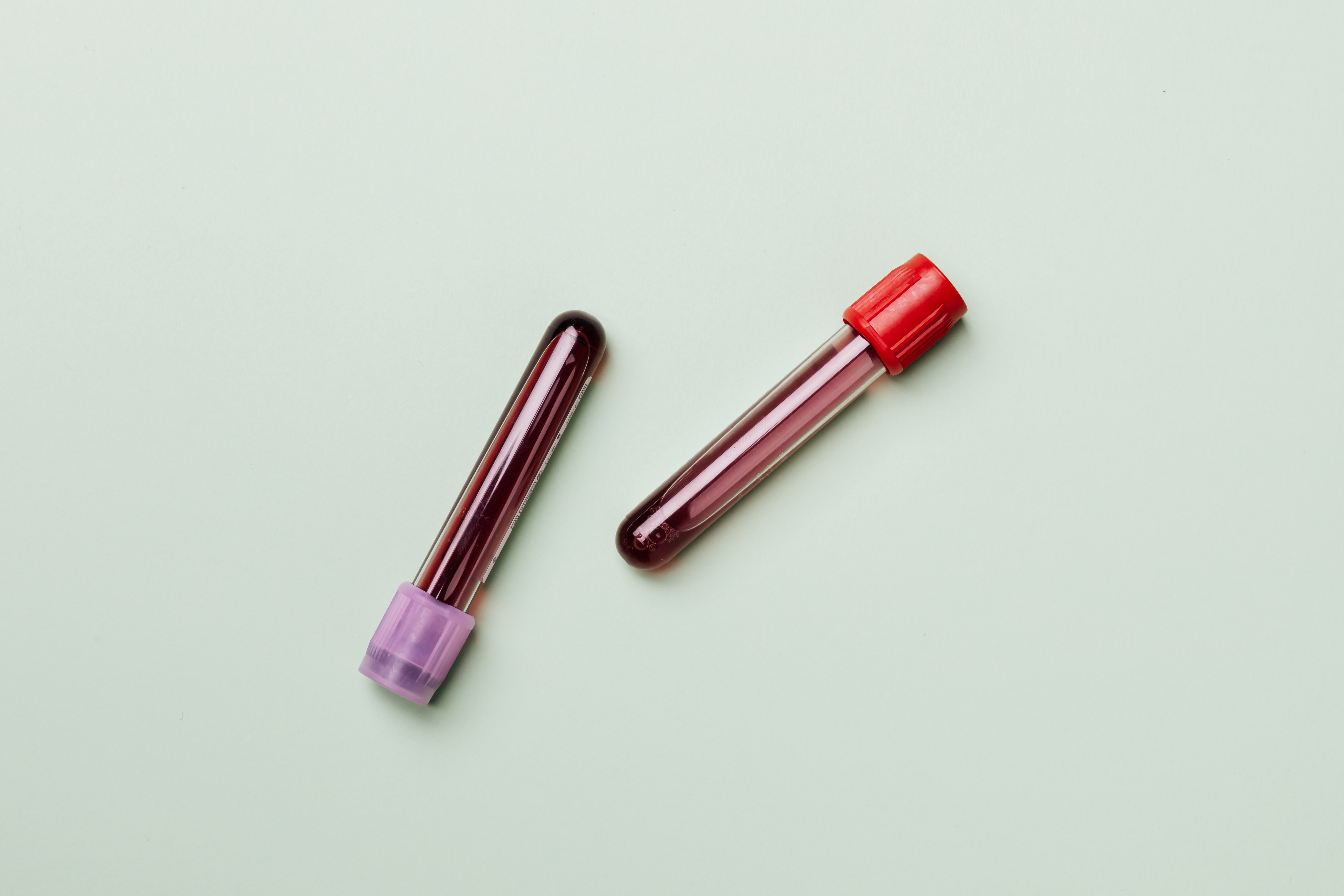
At-Home Fertility Testing: A Comprehensive Guide
by Esther on July 18, 2023 , 8 min read
Fertility testing plays a crucial role in helping individuals and couples understand their reproductive health and potential challenges in conceiving a child. While fertility testing was traditionally done in medical settings, advancements in technology have made at-home fertility testing more accessible and convenient. In this comprehensive guide, we will explore the concept of fertility testing, what it entails, and some of the best at-home fertility testing options available like a testosterone test and semen analysis tests. Whether you're curious about your own fertility or seeking to embark on a journey toward parenthood, this guide will provide valuable insights to help you make informed decisions about your reproductive health.
What is Fertility Testing?
Fertility testing refers to a series of tests and assessments conducted to evaluate an individual's reproductive health and determine their ability to conceive. It involves assessing various factors that can influence fertility, such as hormone levels, ovulation patterns, sperm quality, and overall reproductive function. Fertility testing can help identify any underlying issues or potential obstacles to conception, enabling individuals and couples to make informed decisions about family planning and seek appropriate medical interventions if necessary.
What Does Fertility Testing Involve?
Fertility testing involves a range of assessments to evaluate an individual or couple's reproductive health. It typically includes a comprehensive medical history evaluation, physical examination, hormone level testing, ovulation assessment for women, semen analysis for men, imaging tests to assess reproductive organ health, and genetic testing if necessary. These tests help healthcare providers identify any underlying factors that may affect fertility and guide personalized treatment recommendations. By understanding the results of fertility testing, individuals and couples can make informed decisions and take appropriate steps to optimize their chances of achieving pregnancy.

What are some best At-Home Female Fertility Tests?
The best at-home female fertility tests offered by Kindly Health encompass the following tests all that can be taken from the comfort of your home and with all the privacy you need:
1. Anti-Mullerian Hormone (AMH) Test:
The AMH test is a key component of the female fertility test. It measures the level of Anti-Mullerian Hormone in the blood, which indicates a woman's ovarian reserve.
2. Thyroid-Stimulating Hormone (TSH) Test:
The TSH test evaluates the levels of thyroid-stimulating hormone in the blood. Elevated TSH levels may indicate an underactive thyroid, which can affect fertility.
3. Prolactin Test:
The prolactin test is another important component, a hormone involved in milk production in breastfeeding women. Elevated levels of prolactin can indicate a hormonal imbalance that may affect fertility.
4. Fasting Blood Sugar (FBS) Test:
The FBS test measures fasting blood sugar levels. High levels of fasting blood sugar can indicate diabetes, which can have implications for fertility.

What are some best At-Home Male Fertility Tests?
The Testosterone Test:
The at-home testosterone test is designed to measure the levels of testosterone in the body, which plays a crucial role in male reproductive health. This test typically involves collecting a sample of saliva, blood, or urine, depending on the specific test kit. The sample is then sent to a laboratory or processed using the test kit provided. The results are usually available within a few days and can indicate whether testosterone levels are within the normal range for optimal fertility.
Semen Analysis Test:
The at-home semen analysis test is specifically designed to assess male fertility by evaluating the quality and quantity of sperm in the semen. The test kit typically includes a collection cup and detailed instructions on how to collect a semen sample. Once the sample is collected, it is analyzed for various parameters such as sperm count, motility (movement), morphology (shape), and other factors that contribute to sperm health. The results are then provided, indicating the quality of the sperm and whether it meets the parameters associated with optimal fertility.
Following the instructions provided with the test kits is essential to ensure accurate results. If you have any questions or concerns about the test results make sure to seek medical advice from your doctor or sexologist for further evaluation and guidance.
What Are the Most Common Fertility Tests for Couples?

For couples trying to conceive, it is essential to assess both male and female fertility. The most common fertility tests for couples include
1. Semen Analysis: Semen analysis is a fundamental test to evaluate male fertility. It involves analyzing a semen sample provided by the male partner to assess various parameters, including sperm count, motility (movement), morphology (shape), and overall sperm health. This test provides valuable insights into the quality and quantity of sperm, which are crucial factors in achieving successful conception.
2. Ovulation Testing: Ovulation testing is essential for assessing female fertility. It involves tracking ovulation to determine the timing of the release of an egg from the ovaries. This can be done through various methods, including monitoring basal body temperature, tracking changes in cervical mucus, or using ovulation predictor kits. Ovulation testing helps couples identify the most fertile days in a woman's menstrual cycle, optimizing the timing for intercourse and increasing the chances of conception.
3. Hormone Level Testing: Hormone-level testing is performed for both men and women to evaluate the levels of key hormones involved in reproductive function. For women, hormone tests may include assessing levels of follicle-stimulating hormone (FSH), luteinizing hormone (LH), estrogen, progesterone, and anti-mullerian hormone (AMH). In men, testosterone levels may be measured. These tests provide insights into hormonal balance and potential issues affecting fertility.
4. Genetic Testing: Genetic testing may be recommended for couples with a family history of genetic disorders or a known risk of passing on certain conditions to their offspring. These tests can identify genetic abnormalities or carrier status, allowing couples to make informed decisions about family planning and consider options like preimplantation genetic testing (PGT) for embryos during assisted reproductive procedures.
5. Sperm DNA Fragmentation Test: This test evaluates the integrity of sperm DNA. High levels of sperm DNA fragmentation can impact fertility and increase the risk of pregnancy loss. This test provides insights into the quality of sperm DNA and helps guide appropriate treatment options.
6. Testosterone Test: The testosterone test is one of the common tests conducted for men during fertility evaluation. The testosterone test measures the levels of testosterone, a hormone crucial for male reproductive health. Low testosterone levels can affect sperm production and overall fertility. This test helps assess hormonal balance and provides insights into potential issues that may impact male fertility.
How We Determined the Best At-Home Fertility Tests
To pinpoint the best at-home fertility tests, we considered factors such as accuracy, ease of use (user-friendly), reliability, customer reviews, and scientific validation. Our tests have gained recognition for their effectiveness in assessing fertility parameters and providing valuable information to individuals and couples.

In conclusion, at-home fertility testing has opened up new possibilities for individuals and couples to gain insights into their reproductive health in the comfort of their own homes. Whether you're planning for the future or actively trying to conceive, these tests can provide valuable information and guidance. It is important to remember that at-home fertility tests may not provide a complete assessment of fertility potential, and consulting with a healthcare professional, such as a fertility specialist or reproductive endocrinologist, is recommended for a comprehensive evaluation. By combining at-home testing with professional guidance, you can make informed decisions about your fertility journey and take steps toward achieving your goal of starting or expanding your family.